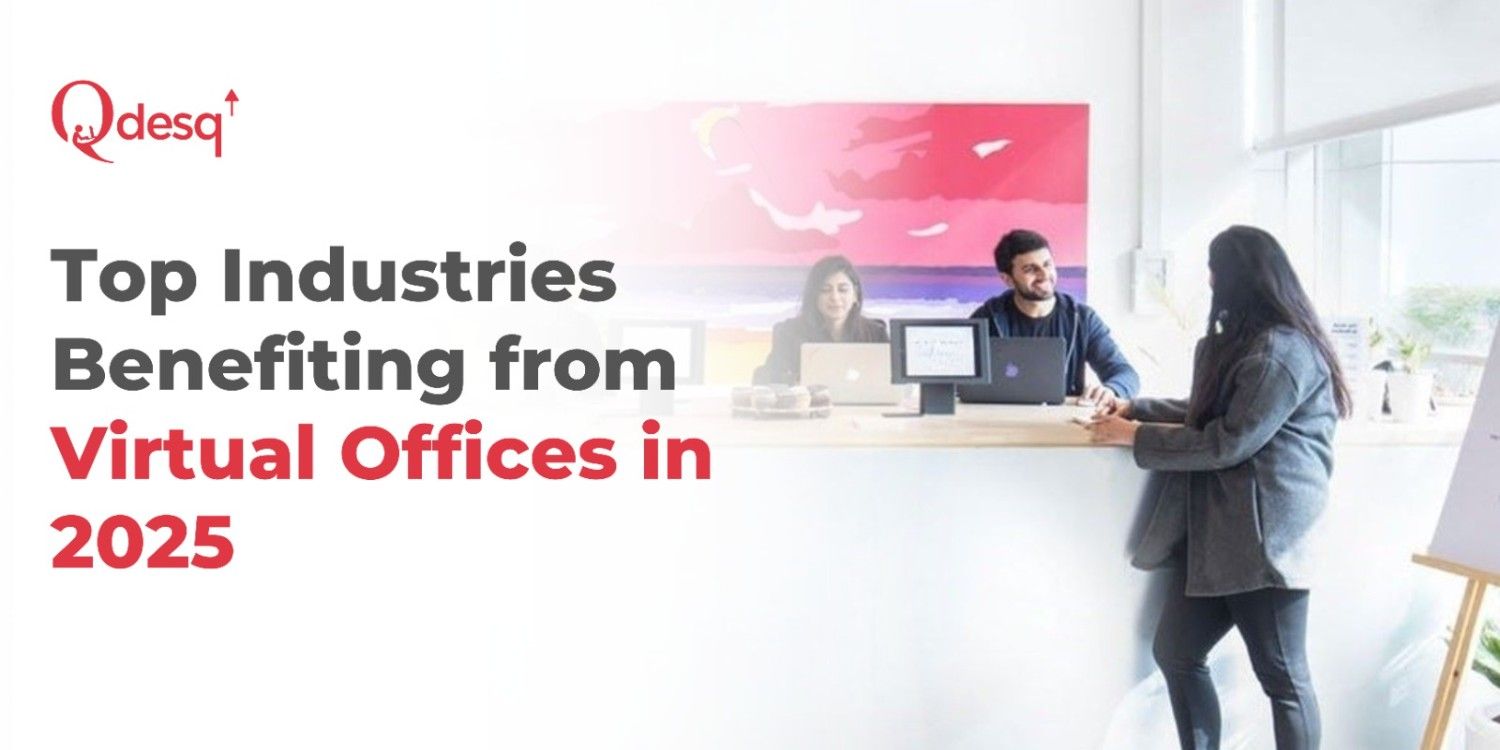For decades, having a business meant having a physical office. A reception area with someone to greet visitors, desks lined up in rows, meeting rooms down the hall—that was the standard. The office wasn’t just where work got done; it was the business itself. But that model? It’s rapidly being rewritten.
Today, the concept of work has changed, and with it, the concept of the workplace. Remote-first teams, digital services, cloud-based collaboration tools, and increasingly global workforces have flipped the script. And in this new landscape, virtual offices are stepping forward—not as a trend, but as a practical, strategic solution.
This isn’t about cutting corners. It’s about building more innovative, leaner, and more flexible operations. Whether you’re launching your brand or optimising an existing one, understanding how virtual offices work—and why they’re gaining traction across industries—might be your most brilliant move.
So, what exactly is a virtual office?
A virtual office gives your business all the key benefits of having a physical workspace without committing to a fixed, full-time location. Think of it as an on-demand office toolkit. Typically, it includes:
- A prestigious business address for your letterhead, website, and customer trust
- Mail and package handling, so you never miss an important delivery
- Dedicated business phone numbers and receptionist services, adding polish to your communications
- On-demand access to physical meeting rooms, lounges, or even private offices when you need them
You keep the outward structure of a traditional business presence but drop the day-to-day costs and maintenance. In a sense, you’re renting the credibility and convenience of an office, without the long-term lock-in.
Why It’s Catching On: The Shift in Workplace Thinking
Virtual offices are booming because they reflect how people work today. We’re seeing a global shift toward hybrid setups, where teams collaborate from multiple cities or continents. Flexibility isn’t just a perk anymore—it’s a requirement for staying competitive, especially in uncertain markets.
And let’s not forget the numbers. Real estate is expensive. Operating costs add up fast. For small businesses, freelancers, and even mid-sized teams, sinking cash into a space you don’t fully use daily doesn’t make financial sense.
But virtual offices offer a way to stay visible, credible, and connected, without being physically tethered.
Who’s Winning Big with Virtual Offices?
Across industries, virtual offices are reshaping how professionals operate. Here’s a closer look at how they’re driving real, measurable value for different types of businesses.
1. E-Commerce Brands
Running an online store? You might never need warehouse-sized office space, but your customers still want to know there’s someone real behind the brand.
Having a virtual office gives your e-commerce business a formal address that’s more credible than a home or P.O. box. It assures customers their returns won’t disappear into a void. It helps you comply with legal requirements for business registration. And it adds a human face to an otherwise digital brand that shoppers can trust.
For small sellers and fast-scaling e-commerce operations, this setup blends digital speed with real-world reassurance.
2. Lawyers, CPAs, and Financial Consultants
Professionals who handle sensitive client data—legal firms, accountants, tax advisors, financial planners—know that trust is non-negotiable. But not all want (or need) to maintain a full-time office anymore.
With a virtual office, you gain privacy and professionalism. Your client doesn’t need to know you’re working from a home office in the suburbs. You can book a fully equipped meeting room when you need to meet face-to-face—the rest of the time, you get your mail securely handled, your business address listed on directories, and your overhead slashed dramatically.
For many, it’s a no-brainer.
3. Creative Agencies
Designers, writers, digital marketers—many creative professionals prefer working where inspiration strikes. That could be at home, in a café, or while travelling. But clients still expect structure, especially when it’s time to pitch, plan, or report.
Virtual offices let creative agencies work from anywhere while offering a polished front when it matters. It says, “Yes, we’re flexible. But we’re also serious about the work.” Teams can meet in stylish conference rooms, invite clients for in-person reviews, or hold hybrid brainstorming sessions with the right tools.
It’s the best of both worlds: freedom + credibility.
4. Wellness Coaches & Health Professionals
The wellness industry is thriving online. Whether it’s nutrition advice, life coaching, therapy, or fitness programs, clients are now more open to virtual sessions than ever. Still, perception plays a significant role in how these services are received.
A virtual office gives solo practitioners and health coaches a touchpoint—a way to say, “Yes, this is a real practice. You can trust us.” With access to clean, private spaces for the occasional in-person consult and support services like scheduling or mail handling, virtual offices create a more polished and secure experience.
5. Tech Startups
In tech, being lean isn’t just trendy—it’s critical. For early-stage startups, every dollar spent on rent is a dollar not going to developers, product R&D, or customer acquisition. However, the total absence of an office can also raise eyebrows, especially among investors.
Enter the virtual office: a low-cost way to establish a corporate presence that looks the part without draining your runway. Need to impress a VC with an in-person pitch? Book a boardroom. Need to show credibility on your pitch deck? Use your professional address.
Spend smart. Scale smart.
6. Educators & Coaches
Online education is booming. Coaches are running six-figure programs from living rooms. But if you’re selling courses or services internationally, being perceived as “just another online guru” can hurt your brand.
A virtual office lets educators establish a local footprint in their key markets—even if they’re teaching from halfway across the world. It lends structure to your operations, builds credibility, and supports the kind of legitimacy that students and parents value.
It’s not about pretending to be bigger. It’s about showing that you’re established.
7. Real Estate Professionals
Real estate work isn’t tied to a desk—it’s mobile. Agents are constantly moving, showing properties, attending closings, and networking. However, they still need a place to drop documents, meet clients, or list as their professional base.
Virtual offices allow realtors to maintain a visible presence in multiple cities or neighbourhoods, without opening new branches. They can use meeting rooms for deal closings or legal consultations while managing the rest of their operations remotely. It’s a modern solution for a fast-paced, location-driven industry.
Why This Isn’t Just a Stopgap—It’s the Future
Let’s be clear: virtual offices aren’t a compromise. They’re not just a fallback for businesses that “can’t afford” a real office. For many, they’re a more innovative, resilient way to operate. They allow businesses to stay agile in uncertain times. They reduce the environmental impact of commuting and large office buildings. And they reflect a modern philosophy: work is what you do, not where you go.
With inflation, economic shifts, and changing employee expectations, flexibility isn’t a luxury—it’s table stakes.
Final Thoughts
The question isn’t if virtual offices will become the norm. It’s how soon your business can benefit from them. Whether you’re launching something new, scaling something great, or simply rethinking what productivity looks like, the traditional office isn’t the only path anymore.
Virtual offices let you show up professionally, work from wherever you’re most effective, and keep your operations lean and adaptive.
And that kind of flexibility? It’s not just convenient—it’s a serious competitive advantage.











